10 Books You Need To Help Your Writing Life
Whether you’re an aspiring writer or a published author with multiple books out, one thing is for sure: we can always improve either our craft or marketing – ABL (always be learning). As I always say, writing and book marketing are not mutually exclusive.
Even traditionally published authors quickly find they need to learn more about their author platform, social media and how to do their own marketing because publishers do not get involved in creating an authors’ social media, blogging or websites anymore.
How do I know? Because I do social media and optimize blog posts for these Big 5 authors.
(I do not do websites. I send people over to Authorbytes for that.) If you can’t or won’t do your own author platform stuff, hire someone to help you, train you, or learn from these books below (or a combo of all three).
Books I Love
So here I present to you, in no particular order, a collection of my favorite books collected over the past twenty years-ish, that helped me enormously with my own writing craft, marketing, creativity, and understanding of the publishing business.
Most people will list the usual suspects by Anne Lamott, Natalie Goldberg, or Francine Prose (isn’t that THE best last name for a writer about writing?) – great books, to be sure. I decided to go a different route, however, since my favorites aren’t all about writing; more about our writing lives as a whole.
*Full disclosure: some of these books include affiliate links where I make a few pennies if you purchase them directly from my website.
- 1The Writer’s Roadmap: Paving the Way to Your Ideal Writing Life
by Leigh Shulman
Such a fabulous book to help you plan, define and measure your writing direction. Most writers have an idea and that’s about as far as it goes. What Shulman does here is give you a model (OGSM = Objectives, Goals, Strategize, Measure) to plan or pave your way (as she says in the title) to the writing life you want, with tons of examples and practical help. Most writers (myself included) create writing goals, and that’s where it stops. What Shulman does is guide us through a practical plan to achieve those goals so we can make it happen.
Example: I wanted to write for Bookbub’s blog (the one for writers). It was a goal which sat prettily in my planner for a year. With the OGSM plan, I took action and now I’ve gone through the submission process and am working on my outline with them for a post on author branding as of this writing. #MakeItHappen #DoTheWork
- 2The Self-Publisher’s Resource Guide: Every Indie Author’s Essential Directory to Help You Prepare, Publish, and Promote Professional Looking Books
by Joel Friedlander and others
Friedlander is well-known in publishing circles as The Book Designer, and he’s super knowledgeable in all things indie publishing. A super handy guide that’s updated frequently, this is my go-to book for basic answers to all kinds of questions. No other book on self-publishing combines the wisdom and down-to-earth advice of over two dozen indie publishing professionals with over 850 links to resource providers. It may well be the “best book for self-publishers” anywhere.
*Full disclosure: I contributed to the social media section of the book, though I do not receive any monetary incentives.*
- 3On Writing: A Memoir of the Craft
by Stephen King
Regardless of whether you’re a fan of his books, there’s no question his advice is on target. Just write. Kill your darlings. Rewriting is where you find the jewels. King is a master of character-building and this book combines his own anecdotes as well as useful advice. If you don’t own this book yet, you need to add it to your shelf.
- 4The Right to Write
by Julia Cameron
One of my all-time favorite books to get over imposter syndrome. Cameron argues every person has the right to write. Sure, it takes skill and years of practice to become the next (whomever – insert your favorite writer here), however, everyone has the absolute right to write. She gives you the tools here. If you’ve heard the term ‘morning pages’ bandied about at some point, this is the genius who created that exercise.
Not everyone will be a professional writer – maybe you just want to journal or blog. Maybe you’re stuck in a rut or have writer’s block. This is THE book for that.
(The Artist’s Way and Workbook are wonderful companions if you find yourself diggin’ on Cameron.)
- 5Still Writing: The Perils and Pleasures of a Creative Life
by Dani Shapiro
I have a soft spot for anything by Dani Shapiro. Not because she’s an AMAZING writer and memoirist. Not because she’s brutally honest about Writing Hard Things. Because I met her in real life at a reading and she was so…gracious and asked about me when I hotly mumbled I was an aspiring writer struggling to share my stories of childhood sexual abuse. She took my hand and said, “Those stories are waiting inside you, patiently. Mine that.”
- 6The Writer’s Journey: Mythic Structure for Writers, 3rd Edition
by Christopher Vogler
My former brother-in-law (a director and screenwriter) gave me this book about twenty years ago when I finally got serious about writing. While it focuses mostly on fiction and mythology’s influence on stories, movies, and man himself, any writer will benefit from understanding mythic structure (aka, Joseph Campbell’s classic hero’s journey and the archetypes). This book is a ‘classic’ for screenwriters, writers, and novelists.
- 7All Marketers are Liars: The Underground Classic That Explains How Marketing Really Works—and Why Authenticity Is the Best Marketing of All
by Seth Godin
I’m a big Godin fan. I recommend all of his books and if you read any of them, you’ll walk away smarter and more enriched. (Permission Marketing is brilliant and pretty much why I abhor automated DMs on Twitter and writers who constantly blast “Buy my book!” tweets at total strangers.) However, I chose this book because it’s a wonderful starter for writers who don’t have a marketing background and need to learn what marketing is all about.
Lots of examples yet what I hope writers take away, as I did, is the importance of authenticity. Many writers freeze when it comes to social media, blogging, or anything else regarding their author platform. What do I say? What should I talk about? This book will help you sort all that out.
- 8A Writer’s Guide to Persistence: How to Create a Lasting and Productive Writing Practice
by Jordan Rosenfeld
Jordan is one of those writers many of us hope to become: an impressive backlist of both fiction and nonfiction, bylines in top publications, married, a darling young son, tall, thin (I tease her that she looks like Julia Roberts), and so darn nice. It’s sickening, really.
The chances of me becoming tall and thin aren’t very likely, so this book is as close as I’ll get at least to kinda sorta following her impressive career path. You’ll discover advice and techniques for cultivating a fruitful, deeply meaningful writing life by practicing your craft, polishing your work, and persisting through even the toughest challenges.
- 9The Author’s Guide to Working with Book Bloggers
by Barb Drozdowich
One of the most intimidating aspects of publishing is garnering reviews. What’s the process? What’s an ‘ethical’ review and what’s not? Who do we ask? What’s the difference between a blog tour and a book tour? What influence do book bloggers have?
Barb answers all these questions and more. In fact, she has an entire series of books to help writers. I strongly encourage you to look at her entire catalog of affordable, informative books for writers.
- 10The BadRedhead Media 30-Day Book Marketing Challenge
by Rachel Thompson
When I published my first books in 2011 and 2012, the only book marketing knowledge I had was what I knew from my own seventeen years in corporate sales and marketing life, and what I could glean from some indie ‘collectives’ online. In other words, confusing. While there’s no definitive right way to market our books, there are definitely wrong ways to go about it.
Where to start? It’s pretty damn overwhelming and confusing. That’s why I created this book. Because I was where you are. My goal with this book is to help writers create a viable author platform with easy once-daily assignments.
by Rachel Thompson
When I published my first books in 2011 and 2012, the only book marketing knowledge I had was what I knew from my own seventeen years in corporate sales and marketing life, and what I could glean from some indie ‘collectives’ online. In other words, confusing. While there’s no definitive right way to market our books, there are definitely wrong ways to go about it.
Where to start? It’s pretty damn overwhelming and confusing. That’s why I created this book. Because I was where you are. My goal with this book is to help writers create a viable author platform with easy once-daily assignments.
by Rachel Thompson
When I published my first books in 2011 and 2012, the only book marketing knowledge I had was what I knew from my own seventeen years in corporate sales and marketing life, and what I could glean from some indie ‘collectives’ online. In other words, confusing. While there’s no definitive right way to market our books, there are definitely wrong ways to go about it.
Where to start? It’s pretty damn overwhelming and confusing. That’s why I created this book. Because I was where you are. My goal with this book is to help writers create a viable author platform with easy once-daily assignments.
Final Book Thoughts
I could have made this a list of fifty books, but I stopped at ten. Maybe I’ll do another post in a few months if this proves popular.
Which of these books do you have? Any others you’d like to add to this list? Please comment below!
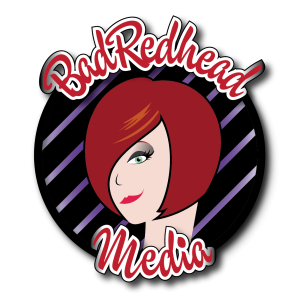
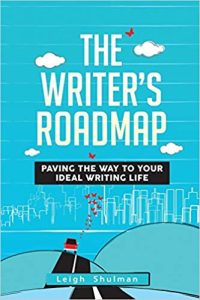
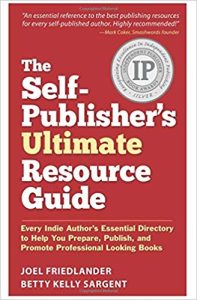
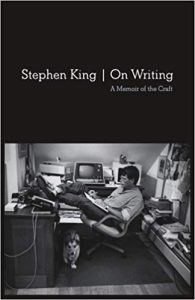
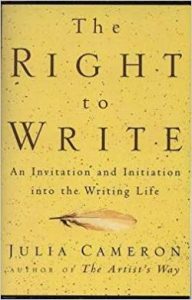
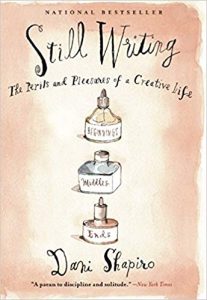
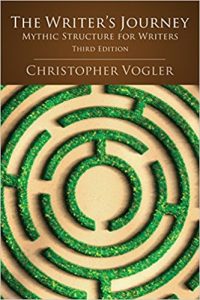
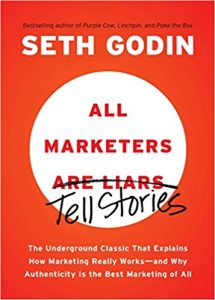
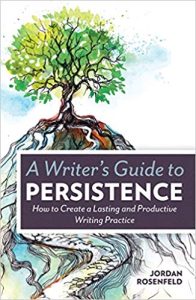
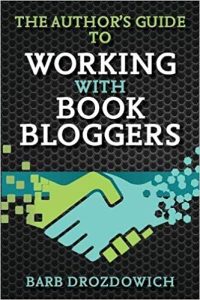
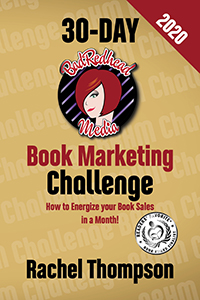
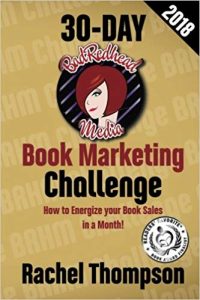
Solid list with a broad range from beginning to write to marketing it. I have read and enjoyed your 30-Day Book Marketing Challenge book.
Thank you, Lisa! Appreciate you reading and commenting. I have many more books on my shelf, yet these are the ones that truly ‘speak’ to me. And thank you for the feedback on my 30-Day book. Adding updates now for 2019!
Naturally, I have both of your books, HOW TO BEST OPTMIZE BLOG POSTS FOR SEO and BadRedhead MEDIA 30-DAY BOOK MARKETING CHALLENGE: How to energize your sales in a month. I also have Stephen King’s book, Cameron’s THE RIGHT TO WRITE and THE ARTIST’S WAY. I have the books of the “usual suspects” that you mentioned and many others.
Books I would add as must haves are:
BIG MAGIC by Elizabeth Gilbert
THE ART OF WAR FOR WRITERS by James Scott Bell
THE WAR OF ART by Steven Pressfield
THE WRITER’S MENTOR by Cathleen Roundtree
I plan to purchase Shulman’s THE WRITER’S ROADMAP:PAVING THE WAY TO YOUR IDEAL WRITING LIFE, and I also want to pick-up THE AUTHOR’S GUIDE TO WORKING WITH BOOK BLOGGERS by Drozdovich.
Happy New Year, Rachel!
Thank you for sharing these gems, Donna! I love THE WAR OF ART by Pressfield. Excellent addition. I don’t have the others. Will add and read. Leigh and Barb are not only personal mentors but also my go-to’s when I need inspiration and help professionally. I can’t say enough about their expertise and practicality for writers, especially for indie writers.
Thank you. I shall definitely take a look.
Things I’d like to know?
What royalty payments etc work.
Best selling strategies?
Hi Sue,
feel free to peruse my site, books, and blog posts to answer your questions. Thanks for visiting!
Excellent list. I will have to check these out, as most I had not heard of before.
wonderful, Sarah! Glad you found some goodies 🙂
I have the Stephen King book and several Julie Cameron books. I also recommend Natalie Goldberg’s Writing Down the Bones.
Thanks for this. I have one or two of these and will look out the others. When I started writing the Stephen King book was the most useful thing I read.
Great references. I have a few of these will check out some of the others. One I would add to the list is Jane Friedman’s the Business of Being a Write. It’s a great reference on the different aspects of the publishing industry.
I have read The Artist’s Way by Julia Cameron and am her number one fan. It’s because of her Morning Pages that I realized I could write! I will definitely look up the book you suggested. 🙂
I also loved Elizabeth Gilbert’s Big Magic. It’s another book that I read whenever I feel lost.
To this list I would add Elizabeth Gilbert’s “Big Magic” which is chock full of insight on finding and not needing inspiration for writing. Anne Lamott’s last name has no “e” at the end, just a minor typo.